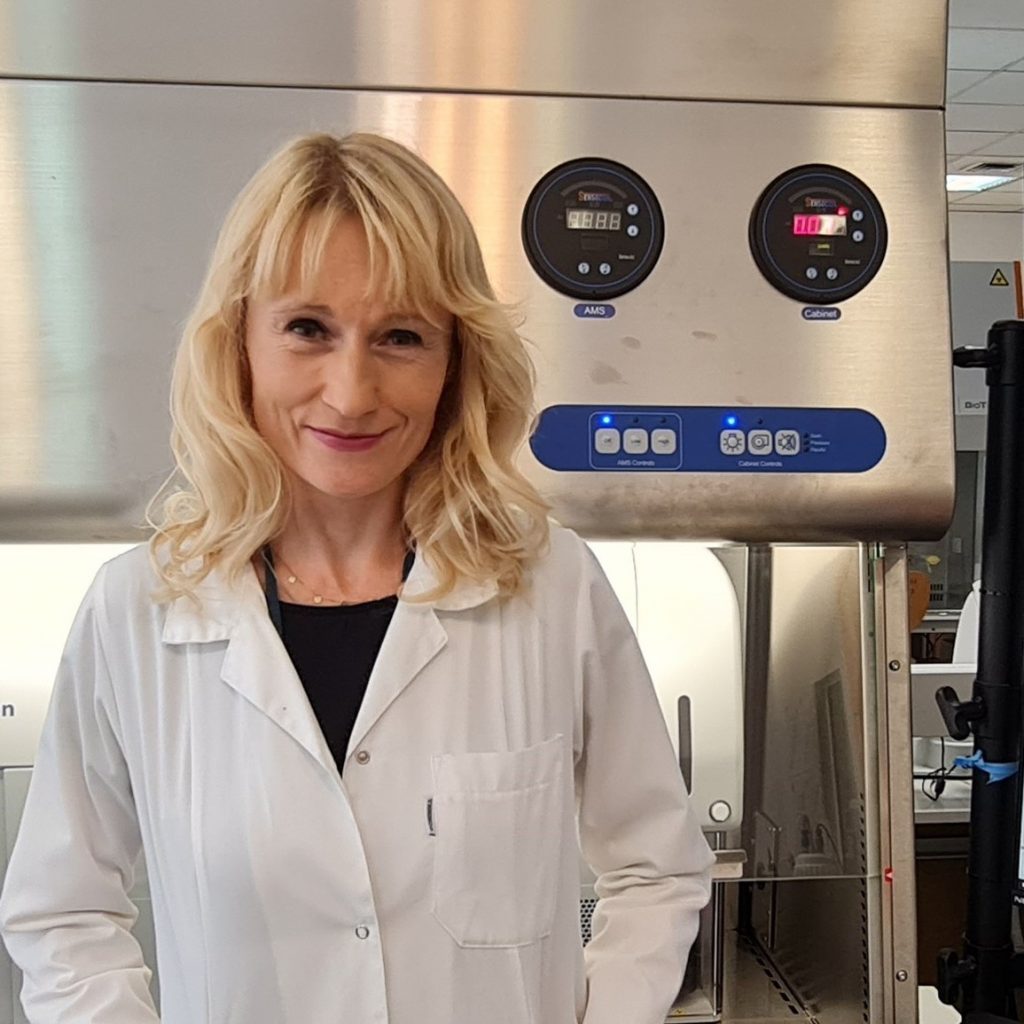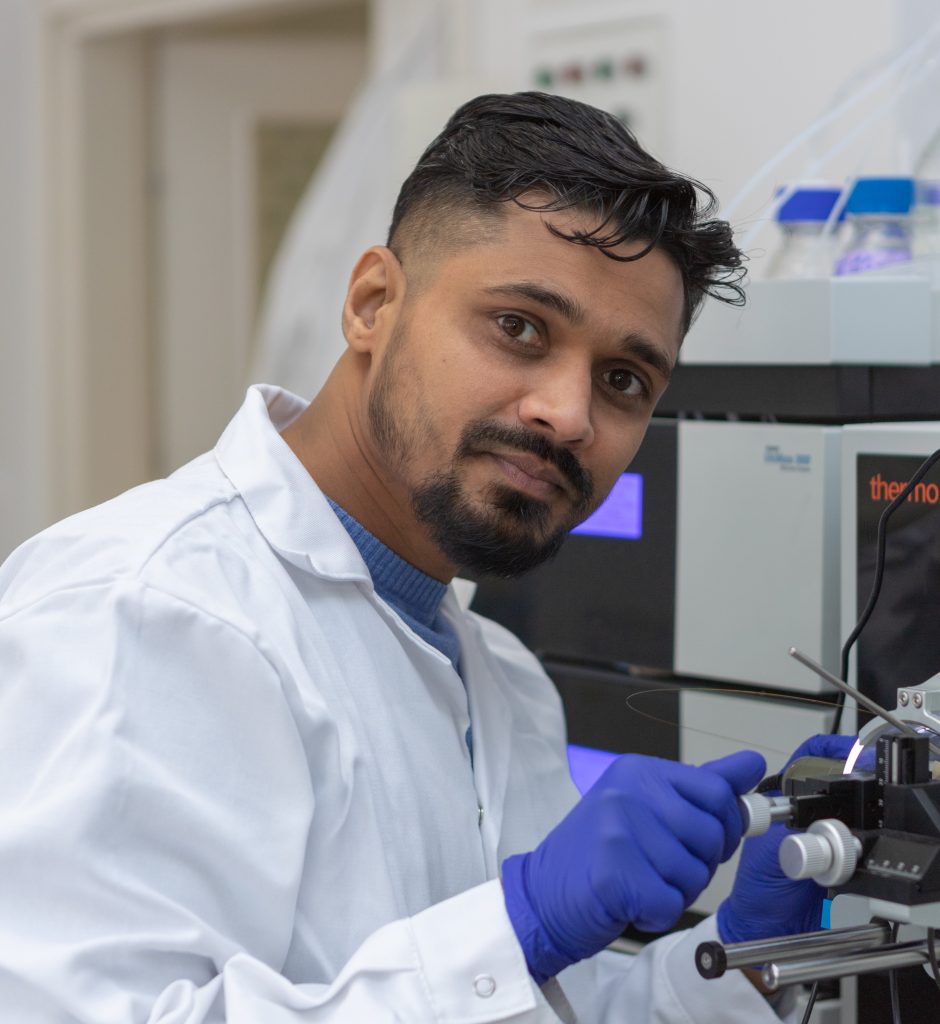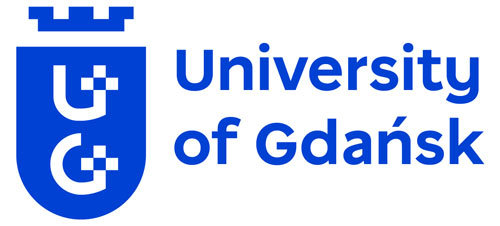CANCER IMMUNOLOGY GROUP
Group leader: Prof. dr hab. Natalia Marek-Trzonkowska 
Prof. Natalia Marek-Trzonkowska graduated from the Faculty of Veterinary Medicine at the University of Warmia and Mazury in Olsztyn (Poland). In 2010 she defended her PhD thesis with distinctions at the Faculty of Medicine of the Medical University of Gdańsk. In 2013 she was conferred the PhD hab. (Associate Professor) degree and in 2019 the degree of Professor of Medical Sciences. She has co-authored the first clinical therapy using autologous regulatory T lymphocytes (Tregs). She completed her postdoctoral internship at the University of Chicago (USA), partly within the scholarship from the Kosciuszko Foundation and the Polish-American Medical Society (PAMS).
The scope of the research
The research conducted by Prof. Marek-Trzonkowska’s team is primarily focused on developing a new adoptive cell therapy for non-small cell lung cancer (NSCLC), along with design and therapeutic applications of new molecules which exhibit a potentiating effect on the cytotoxic activity of anti-cancer cells. Moreover, the group concentrates on analysing the mechanisms of general immmunotolerance and immune response against SARS-CoV-2 virus antigens. Together with the Chemical Biology Group, research aimed at acquisition and therapeutic use of peptides presented by MHC is also conducted.
CLINICAL PEPTIDOMICS GROUP
Group leader: Dr Sachin Kote
Dr Sachin Kote graduated in Biotechnology from Bangalore University (India). He started his scientific research at National Chemical Laboratory (NCL), India. In 2015 he defended his PhD thesis with an excellent Ph.D. award from the Italian Institute of Technology-Center for Biomolecular Nanotechnologies (IIT–CBN), University of Salento, (Italy). During his first postdoctoral research at the Italian Institute of Technology (IIT), Genova (Italy), he developed protein nanoparticles for nanomedicine and dissolution tests for risk assessment nanomaterials. In 2018 he joined senior postdoctoral research with the International Centre for Cancer Vaccine Science (ICCVS) to develop the Neoantigen Discovery pipeline. From October 2020, due to the absence of Dr Dapic, he is the Deputy Group Leader of the Chemical Biology Group at ICCVS. Currently, Dr Sachin Kote is the Group Leader of the Clinical Peptidomics Group. Dr Kote’s current research focuses on neoantigen discovery (from cellular and clinical samples) for cancer vaccine development, and novel peptidomics (biofluids) approaches to develop the Point Of Care Diagnostic (POCD) platforms for acute and chronic disease.
The scope of the research
The primary focus of the Clinical Peptidomics Group is to screen patients (non-small cell lung cancer, NSCLC) derived neoantigens by mass spectrometry (MS) to achieve the goal of ICCVS. These neoantigens allow us with Cancer Immunology Group to develop novel adaptive therapeutic applications for cancer patients (NSCLC). Moreover, the group is building of Eco-Immunology via a neoantigen discovery pipeline. Together with the Computational Biology/Bioinformatics Group, Dr Kote is establishing theoretical frameworks to understand eco-immunology and its impact on animal disease ecology (mice, canines, cheetahs, leopards, etc.). Dr Kote’s team also developed novel peptidomics (serum, cellular) and quantitative proteomics approaches for Diagnostic, Prognosis, Monitoring, and Prediction (DPMP) platforms for acute and chronic diseases.


